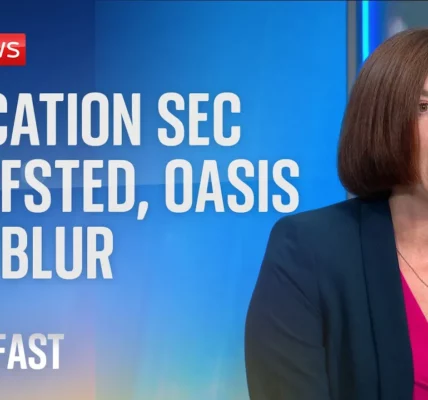Scottish Parliament Elections: A Path to Independence

The Scottish Parliament elections of 2021 saw a significant shift in political dynamics, with a parliamentary majority advocating for independence. This article explores the implications of this mandate, the role of the Scottish National Party (SNP), and the future of Scotland’s political landscape.
Introduction
The 2021 Scottish Parliament elections marked a pivotal moment in Scotland’s political history, as a majority was elected that expressed a firm commitment to holding an independence referendum. This article delves into the mandate for independence and examines how the recent elections could intensify the push for Scotland to choose its own future. The discussion will cover the significance of the SNP’s potential electoral success and its implications for Scotland’s quest for independence.
The Electoral Landscape and the Mandate for Independence
In the 2021 elections, the Scottish electorate faced a crucial decision regarding their political representation and the future trajectory of Scotland. The mandate for independence emerged as a central theme, influenced heavily by the performance of the Scottish National Party (SNP). Understanding the electoral dynamics is key to grasping how Scotland can navigate its path towards independence.
Understanding the Mandate
The concept of a mandate for independence hinges on the notion that if the SNP secures a majority of seats in the Scottish Parliament, it would constitute a legitimate claim to pursue negotiations for independence. This perspective raises critical questions about the interpretation of electoral outcomes:
- What constitutes a “majority”? Is it merely the number of seats won?
- How does public support translate into political action for independence?
- What are the implications of a potential SNP majority on discussions with the UK government?
Voter Sentiment and Political Strategy
Political analysts have observed that voter sentiment is shifting. The SNP’s strategy focuses on reinforcing the message that a vote for them is a vote for independence. However, this strategy must contend with the realities of the electoral landscape:
- The SNP’s need to maintain a strong presence despite potential seat losses.
- Addressing concerns from independence voters who may feel disillusioned.
- Positioning the SNP as a viable alternative to both the Conservative and Labour parties.
The Role of the Scottish National Party (SNP)
The SNP plays a crucial role in Scotland’s political framework, particularly concerning the independence debate. A significant part of the party’s platform revolves around securing a referendum that allows the Scottish people to decide their future.
The SNP’s Commitment to Independence
Throughout its history, the SNP has been steadfast in advocating for Scottish independence. Key points regarding their commitment include:
- The call for a referendum as a democratic means to gauge public support.
- The assertion that an SNP majority in Parliament would empower negotiations with the UK government.
- The message that independence is not merely a political slogan but a viable option for Scotland’s future.
Challenges Faced by the SNP
Despite its strong advocacy, the SNP has encountered significant challenges:
- Internal party turbulence, with leadership changes affecting public perception.
- Criticism regarding governance and the handling of public services.
- Competition from other political parties, particularly Labour, which may appeal to voters seeking change.
Implications for Scottish Politics
The outcome of the elections has far-reaching implications for Scotland’s political future. As the SNP strives to consolidate support, the broader political landscape will influence the feasibility of an independence referendum.
Potential Outcomes of the 2021 Elections
Various scenarios could emerge depending on the election results:
- If the SNP secures a majority, it would bolster the case for negotiations regarding independence.
- A loss to Labour could significantly hinder the independence agenda, at least temporarily.
- The dynamics of coalition politics may also come into play, influencing policy direction.
Public Perception and the Future of Independence
The public’s perception of independence is crucial. Key factors influencing this perception include:
- The effectiveness of the SNP in addressing governance issues.
- The clarity of the party’s message regarding independence.
- The responsiveness of the party to voter concerns about economic and social issues.
Conclusion
The 2021 Scottish Parliament elections represent a crucial juncture for Scotland as it seeks to define its future. The SNP’s role in advocating for independence is paramount, and the upcoming electoral outcomes will significantly shape the conversation around Scotland’s autonomy. As we move forward, it is vital for voters to engage with these critical issues, ensuring their voices are heard in the democratic process. To stay informed on Scotland’s political developments, be sure to explore our related articles on the Scottish National Party and the independence movement.
“`




